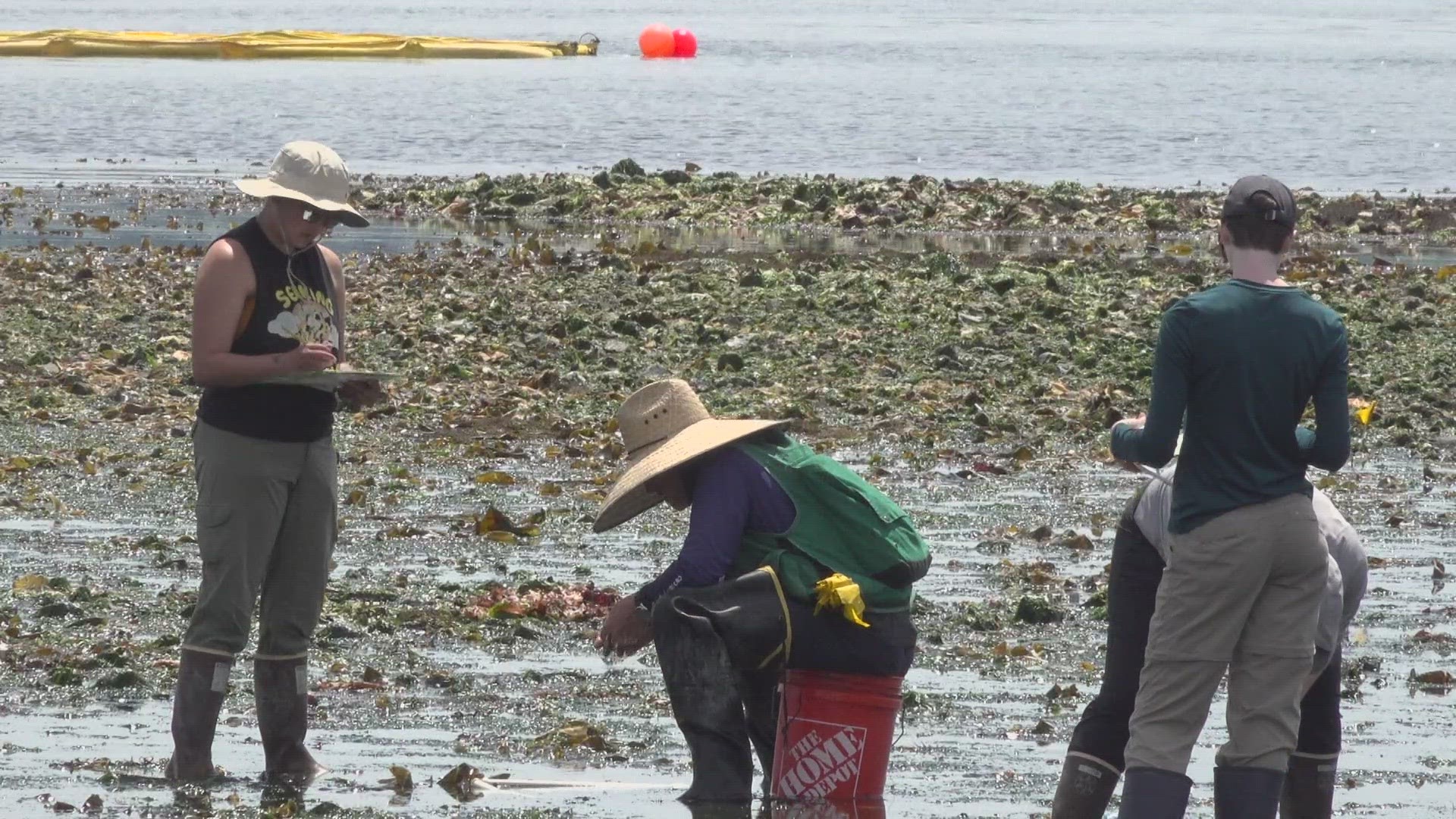SEATTLE — Researchers with the Port of Seattle, Puget Sound Restoration Fund and the Washington State Department of Natural Resources are studying the potential impacts of eelgrass restoration and planting kelp on water quality and oyster health.
They hope to learn more about the relationships between these components, and whether there could be effective ways to trap carbon, improve water quality and reduce ocean acidification across Puget Sound. The Port of Seattle says the $275,000 investment aims to "combat climate change by capturing carbon in ocean and nearshore environments, often called 'blue carbon.'"
"This is a pilot project and we've learned a lot over the past few years about enhancement and restoration of these types of ecosystems," Port of Seattle Senior Environmental Program Manager Kathleen Hurley said. "We're excited to see what's next and to continue some of our research on kelp and continue monitoring the oysters here on Smith Cove."
According to the National Oceanic and Atmospheric Administration (NOAA), "blue carbon" is a term for the carbon captured by ocean and coastal ecosystems. Like healthy forests sequester carbon in their leaves and branches, plants can absorb and transfer carbon dioxide through photosynthesis, and shellfish can store carbon in their shells. But NOAA says when these systems are damaged, the carbon is re-emitted, contributing to climate change -- so the agency says it's crucial to protect and restore habitats. That is also a part of the Port's work.
"To better understand how enhancement and restoration of eelgrass, kelp and Olympia oysters [play into] the impacts of ocean acidification and also the potential for carbon sequestration here in Elliott Bay," Hurley said.
The Smith Cove Blue Carbon pilot project was originally pitched by a Port of Seattle intern. The area, between Elliott Bay Marina and Smith Cove, is home to a lot of activity, including traffic by fishing and commercial vessels and cargo transfer work.
"It's really important here in Puget Sound because as our water chemistry changes related to changing climate, Puget Sound is quite vulnerable to what's called ocean acidification," Hurley said.
Learn more about the project here.

